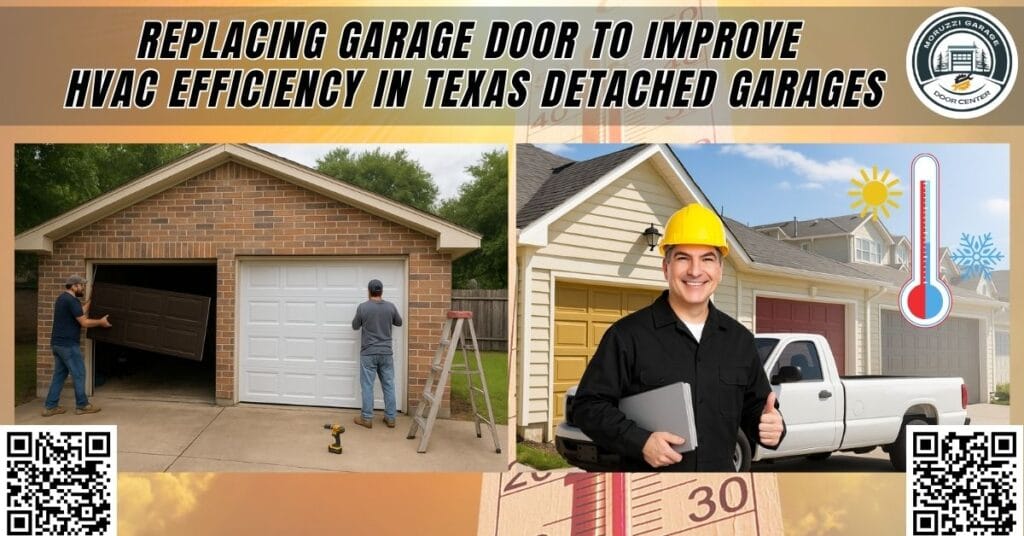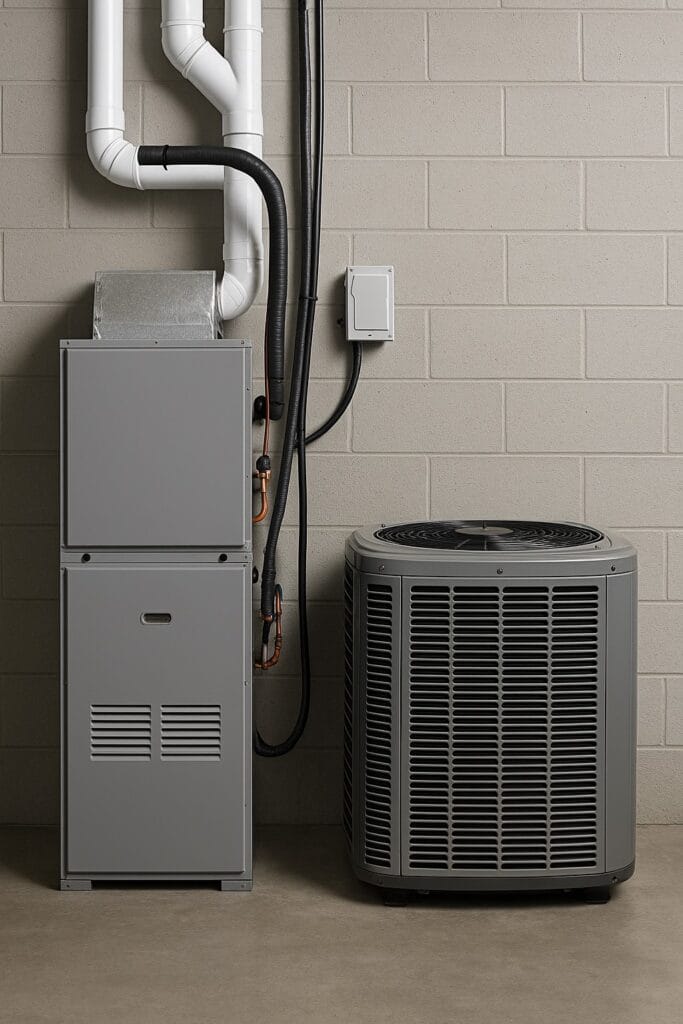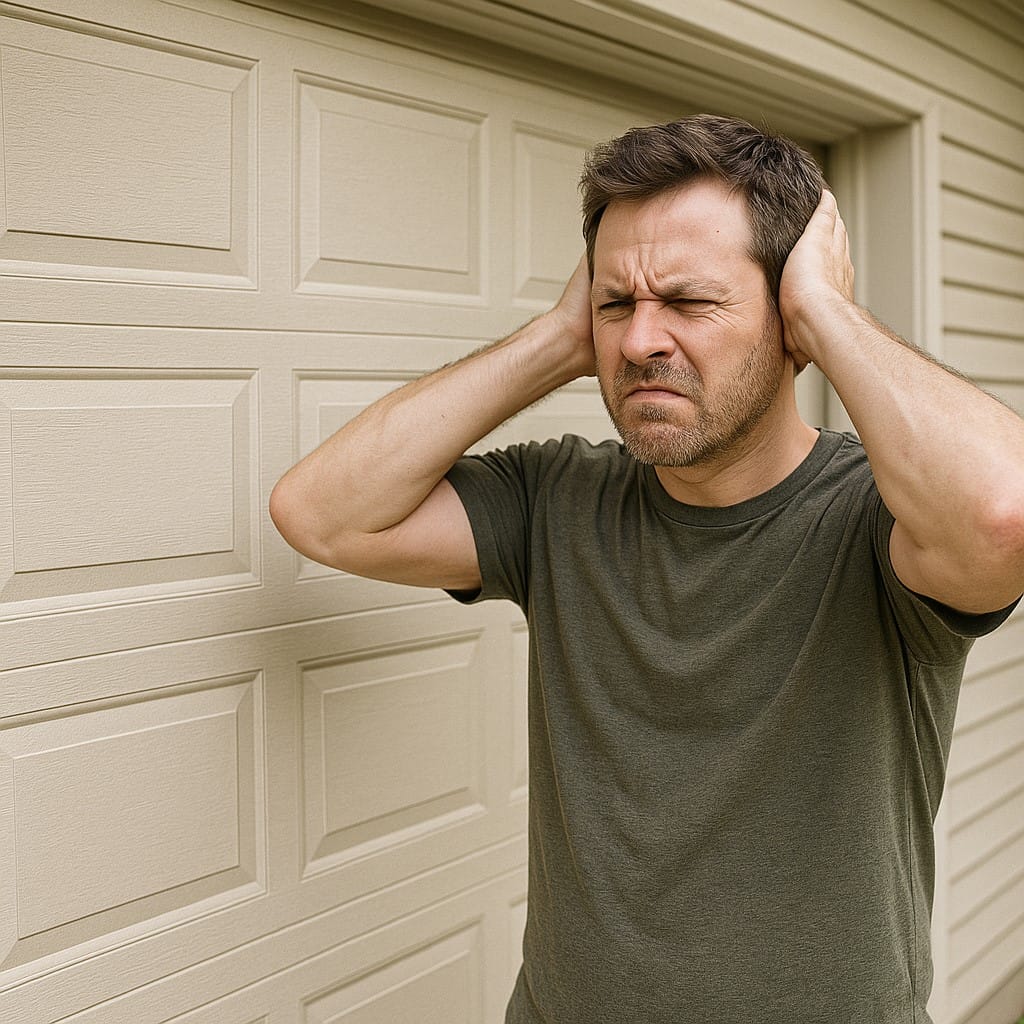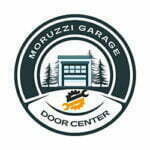Replacing Garage Door to Improve HVAC Efficiency in Philadelphia Detached Garages

By Moruzzi Garage Door Center – Premier Garage Door Service in Philadelphia, PA
“My garage felt like a furnace in summer and an icebox in winter, even with an HVAC system installed,” said one homeowner. This wasn’t an isolated case. After consulting with a garage door specialist and replacing garage door with a new insulated steel model featuring modern smart features and proper weather sealing, their energy bill dropped by nearly 25%. This kind of transformation is not only possible, it’s becoming increasingly common in regions like Philadelphia.
According to the U.S. Department of Energy, up to 30% of a home’s energy loss can stem from poorly insulated spaces, with garage doors being a major contributor. In climates with fluctuating temperatures and distinct seasons like Philadelphia, replacing old garage door systems with insulated alternatives is essential for temperature regulation and energy conservation.
Many homeowners still experience extreme temperature swings in their detached garages, even after investing in high-efficiency HVAC systems. The true solution often lies in upgrading the garage door, especially if it lacks insulation, weatherproofing, or smart technology.
Why HVAC Efficiency Matters in Philadelphia Detached Garages
Philadelphia experiences a full range of seasons, from cold, snowy winters to humid, hot summers. Detached garages, often not designed with climate control in mind, can suffer greatly from outdated, uninsulated doors. Installing HVAC systems in these garages helps, but only if the structural elements, like garage doors, support the effort.

Detached garages are increasingly being repurposed as home gyms, studios, workshops, or office spaces. To maintain a stable, livable indoor environment, garage door insulation and sealing are critical.
Modern garage doors come with tightly sealed tracks and insulated panels that reduce air leakage, enhance HVAC performance, and contribute to long-term savings. These features increase the R-value (a measure of insulation performance), minimize drafts, and help keep conditioned air inside.
How Replacing Garage Doors Boosts HVAC Efficiency
✅ Enhanced Insulation with High R-Value Materials
Upgrading to garage doors with polyurethane foam insulation or polystyrene panels dramatically improves the thermal barrier. These materials raise the R-value, enabling more effective temperature control and minimizing energy loss.
Insulated steel doors, fiberglass-reinforced panels, and dual- or triple-layered constructions trap air and resist thermal transfer. Some options also include insulated glass inserts for natural light without compromising insulation.
✅ Advanced Weather Sealing and Air Protection
Modern garage doors include comprehensive sealing systems: bottom seals, weatherproof side gaskets, and threshold strips. These prevent hot or cold drafts, moisture, and dust from infiltrating the garage. Older doors often allow light and air to leak through gaps in panels or frame edges, reducing HVAC effectiveness.
Swapping those out for newer, tighter-fitting doors enhances comfort and energy savings.
✅ Reduction in HVAC Overuse and Lower Energy Bills
Properly insulated and sealed garage doors lighten the load on your HVAC system, leading to:
- Less wear and tear on HVAC equipment
- Shorter run times
- Lower overall energy consumption
With the help of smart garage door openers like those from LiftMaster or Chamberlain, doors can automatically close when not in use, reducing heat or cool air loss. Combined with these upgrades, some homeowners report energy savings of up to 25%.
✅ Comfort, Safety, and Functionality All Year Long
An insulated garage with a smart opener and backup battery ensures comfort, safety, and access—even during a power outage. This is vital for anyone storing electronics, using their garage as a workspace, or housing temperature-sensitive equipment.
Warning Signs That It’s Time to Replace Your Garage Door

Here’s how to tell your old garage door may be undermining your HVAC efforts:
- No insulation or visibly thin panels
- Rusted, warped, or cracked panels
- Failing torsion springs or extension springs
- Poor seals or visible light around edges
- Unusual noise or difficulty when operating
- Higher utility bills with no HVAC issues
- Lack of Wi-Fi-enabled or modern garage door opener features
Ignoring these issues can lead to bigger repairs and higher costs down the line.
Choosing the Right Garage Door for HVAC Efficiency
Use this checklist to choose a high-efficiency door for your Philadelphia detached garage:
- Insulation and Material
Look for garage doors with polyurethane insulation and made from steel or composite materials for durability and performance. - Panel Construction
Opt for triple-layer construction insulated steel-core panels offering the best protection and aesthetic value. - Torsion Springs & Tracks
Choose a model with torsion springs for smooth operation and longevity. Updated track systems ensure quiet, reliable function. - Smart Openers & Backup Power
Smart garage door openers with smartphone integration, scheduled open/close, and temperature alerts enhance control and efficiency. - Glass Inserts
Consider insulated glass panels for natural lighting while retaining thermal integrity.
Garage Door Cost vs. Long-Term Value
Garage door replacement typically ranges from $1,200 to $2,500, depending on size, material, insulation level, and tech features.
But the benefits far outweigh the initial cost:
- Lower utility bills from better HVAC support
- Higher resale value and curb appeal
- Fewer repair expenses over time
- Safer, smarter garage access
With regular maintenance, your new garage door can last 20–30 years.
Energy-Efficient Garage Door Maintenance Tips
- Lubricate hinges, tracks, and rollers regularly
- Keep weatherstripping clean and tight
- Use smart controls to prevent doors from being left open
- Inspect for rust or wear on panels and repaint steel annually
- Replace backup batteries before seasonal weather changes
- Schedule yearly maintenance checks with a garage door specialist
These simple garage door repair and upkeep tips help extend the life of your investment and ensure ongoing HVAC efficiency.
How Can Moruzzi Garage Door Center Help You?
At Moruzzi Garage Door Center, we proudly serve the Philadelphia, PA community with top-tier garage door solutions. If your detached garage feels uncomfortable or your HVAC is overworked, it might be time to upgrade.
Our comprehensive garage door services include:
- 🔧 New garage door installation with modern insulation
🔩 Garage door spring replacement, including torsion and extension springs - 🔌 Smart garage door opener upgrades with backup battery
- 🧰 Garage door repair and regular maintenance plans
- 🪛 Custom solutions for door panels, tracks, and safety systems
Whether you’re looking to improve energy efficiency, enhance curb appeal, or secure your garage with smart features, we’ve got the tools, experience, and dedication to help.
📍 Visit Us At:
1300 Market St, Philadelphia, PA 19107, United States
📞 Call Now:
(267) 732-0907
👉 Don’t let an old door drain your energy budget. Contact Moruzzi Garage Door Center today to schedule your FREE consultation and upgrade your garage for comfort, safety, and savings.
Frequently Asked Questions (FAQs)
1. How do I know what R-value my garage door needs for Texas weather?
For Texas climates, a garage door with an R-value of 13 or higher is recommended to ensure proper insulation and energy efficiency in detached garages.
2. Can I replace just the insulation inside my existing garage door instead of the whole door?
While insulation kits exist, they often provide limited benefits; replacing the entire door with a modern insulated model is more effective for long-term HVAC efficiency.
3. Will an insulated garage door make a difference if my garage has no HVAC system?
Yes, it will still help regulate temperature, reduce humidity, and protect stored items from heat damage even without active heating or cooling.
4. How often should garage door insulation be replaced or upgraded?
High-quality garage door insulation can last 15–20 years, but it’s wise to inspect it every few years for moisture damage, sagging, or wear.
